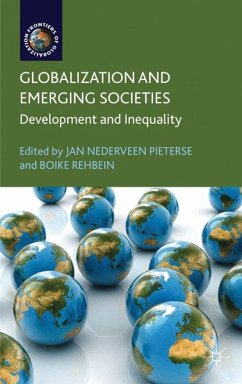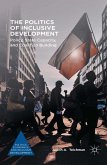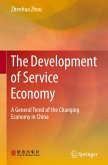This upper level textbook provides readers with evocative and analytical accounts ofsocial processes that are linked to globalization and connectivity, which includes a widerange of multi-centred connections in history, DNA analysis, technology, art populismand political economy.
Rather than globalization, Nederveen Pieterse focuses on connectivity. His approachto globalization differs from both structuralist accounts of the world-system, and theinstitutionally-centred focus of much work in international studies. This synthesis willprovide a new resource to reconstruct theoretical approaches to globalization andglobal studies.
Fluently written, clearly organized and with an interdisciplinary approach, the bookwill be accessible to upper division undergraduates and graduates in social sciences andhumanities, including students and researchers from the fields of sociology, politics,political economy, development studies and international relations.
Rather than globalization, Nederveen Pieterse focuses on connectivity. His approachto globalization differs from both structuralist accounts of the world-system, and theinstitutionally-centred focus of much work in international studies. This synthesis willprovide a new resource to reconstruct theoretical approaches to globalization andglobal studies.
Fluently written, clearly organized and with an interdisciplinary approach, the bookwill be accessible to upper division undergraduates and graduates in social sciences andhumanities, including students and researchers from the fields of sociology, politics,political economy, development studies and international relations.
'This original collection offers a novel perspective: that of emerging societies and global inequalities. It is comprehensive yet focused; comparative yet cumulative; interdisciplinary yet cohesive. It presents a range of critical voices from and about the global South yet cautions that not all countries and sectors will benefit: only some capitalisms and communities will thrive as the BRICs supersede the dominance of the G-8.' - Timothy M Shaw, Professor & Director, Institute of International Relations at The University of the West Indies, St Augustine, Trinidad & Tobago
'A remarkably coherent collection of impressive essays exploring both the opportunities and the dark consequences of globalization. Between them the chapters deconstruct the concept of development, show what it means in different contexts in different societies, and alert us to the dangerous in egalitarian consequences of unplanned growth. A most welcome contribution to the growing literature on globalisation.' - Bhikhu Parekh, Professor of Political Philosophy, University of Westminster, UK
'A remarkably coherent collection of impressive essays exploring both the opportunities and the dark consequences of globalization. Between them the chapters deconstruct the concept of development, show what it means in different contexts in different societies, and alert us to the dangerous in egalitarian consequences of unplanned growth. A most welcome contribution to the growing literature on globalisation.' - Bhikhu Parekh, Professor of Political Philosophy, University of Westminster, UK








